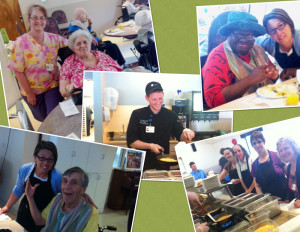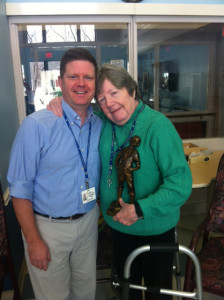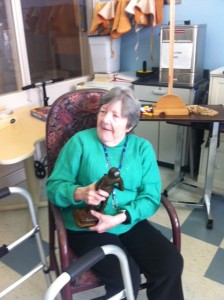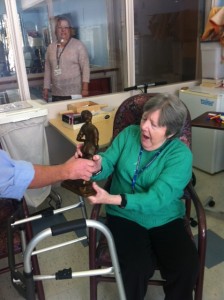Preventing the Norovirus Infection is a challenge in nursing facilities, day care centers, schools and other environments where people live, work, or spend their days in close proximity to others.
The best way for everyone to prevent getting the Norovirus Infection is to follow the following guidelines recommended by the CDC.
Practice proper hand hygiene
Wash your hands carefully with soap and water especially after using the toilet, changing diapers and always before eating, preparing or handling food.
Noroviruses can be found in your vomit or stool even before you start feeling sick. The virus can stay in your stool for 2 weeks or more after you feel better. So, it is important to continue washing your hands often during this time.
Alcohol-based hand sanitizers can be used in addition to hand washing. But, they should not be used as a substitute for washing with soap and water.
Wash fruits and vegetables and cook seafood thoroughly
Carefully wash fruits and vegetables before preparing and eating them. Cook oysters and other shellfish thoroughly before eating them.
Be aware that noroviruses are relatively resistant. They can survive temperatures as high as 140°F and quick steaming processes that are often used for cooking shellfish.
Food that might be contaminated with norovirus should be thrown out.
Keep sick infants and children out of areas where food is being handled and prepared.
When you are sick, do not prepare food or care for others who are sick
You should not prepare food for others or provide healthcare while you are sick and for at least 2 to 3 days after you recover. This also applies to sick workers in settings such as schools and daycares where they may expose people to norovirus.
Many local and state health departments require that food handlers and preparers with norovirus illness not work until at least 2 to 3 days after they recover. If you were recently sick, you can be given different duties in the restaurant, such as working at a cash register or hosting.
Clean and disinfect contaminated surfaces
After throwing up or having diarrhea, immediately clean and disinfect contaminated surfaces. Use a chlorine bleach solution with a concentration of 1,000 – 5,000 ppm (5 – 25 tablespoons of household bleach [5.25%] per gallon of water) or other disinfectant registered as effective against norovirus by the Environmental Protection Agency (EPA).
Wash laundry thoroughly
Immediately remove and wash clothes or linens that may be contaminated with vomit or stool (feces).
You should handle soiled items carefully without agitating them, wear rubber or disposable gloves while handling soiled items and wash your hands after, and wash the items with detergent at the maximum available cycle length, then machine dry them.
For additional information, you can go to the CDC at www.cdc.gov.








